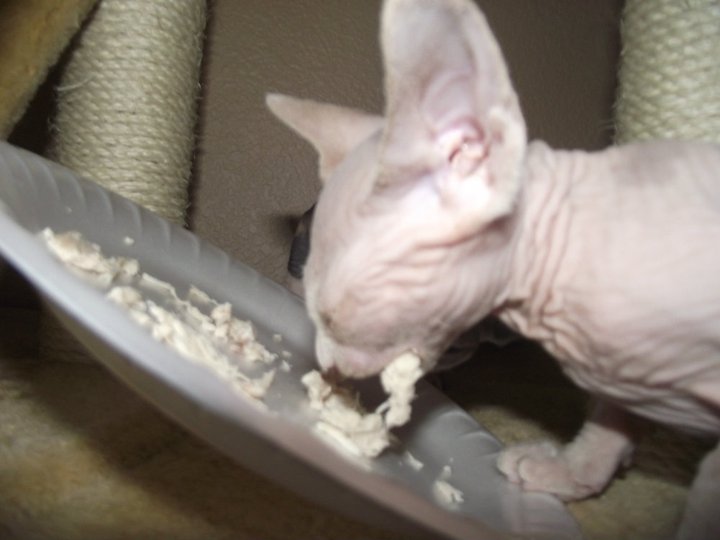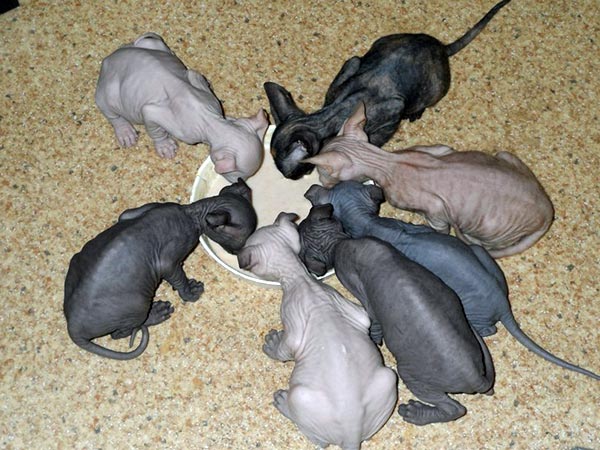 Diet Information
Diet Information
Sphynx General Health
The Sphynx breed has the advantage of overall good health. Their long life span can take these animals over the ten to twenty year mark. To keep them active and healthy, should see the veterinarian annually and it is advisable to have the vet clean teeth starting around two years of age. Ear problems and dental issues are not commonly associated with this breed. At home, keep chemicals and other dangerous elements out of reach of your cat, which can greatly harm them.
Vaccinations are key when protecting your pet against maladies such as: rabies, infections and distemper, to name a few. When your cat is in the age of six weeks, you should take him in to get the proper vaccinations. This will continue on a monthly basis up to the age of four months, then will revert to an annual series. One extra set of shots will need to be administered when the cat is about four months old. Rabies' vaccination may be required in your state or local area. Always watch your cat for Symptoms of Sphynx Cat Diseases.
 Sphynx Diet and Feeding For Your Cats
Sphynx Diet and Feeding For Your Cats
The litter box that you provide for your Sphynx should preferably be covered, but whichever one you use be sure to keep it clean. Your cat will get unhappy if the box becomes filthy and may not use it, instead going somewhere else to the bathroom that you may not like. On a weekly basis be sure to clean the box out thoroughly and use a mixture of bleach and water to give it a sanitary scrub. This will prevent germs and bacteria from building up. When you adopt a kitten, you will need to show where you have located the box, and repeat this process several times the first day. These are intelligent animals, and they will learn quickly.
Please Note: do not use litter that contains too much DUST in order to avoid Sphynx eye allergy! "World's Best Cat Litter" is recommended for Sphynx cat litter.

